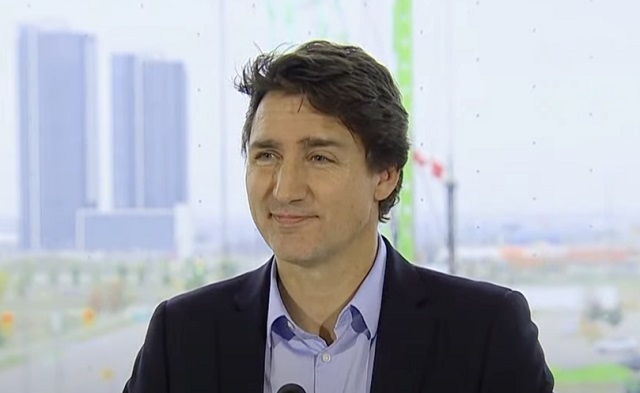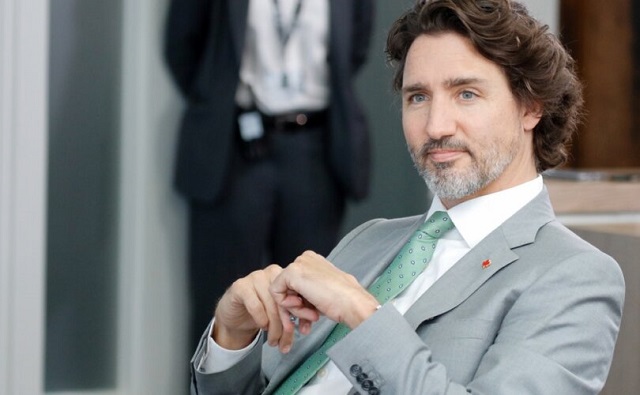Economy
A Fair Deal Includes Energy Security
This article contributed by Josh Andrus, Executive Director of Project Confederation
Energy security.
It’s a concept that has been ignored by many – including our federal government in Ottawa – for far too long.
Russia’s invasion of Ukraine has suddenly helped the world realize what’s been obvious to many Albertans for a long time – we still need oil and gas!
The same parade of politicians who crusaded to save the world from the threat of “catastrophic” climate change are now coming to the realization that there is a fundamental flaw in the Green New Deal / Leave It In The Ground / Build Back Better strategy.
Energy is the industry that powers every other industry – and as such, a safe supply of affordable, reliable energy is not only good for the domestic economy but also a crucial tool in an increasingly volatile international geopolitical landscape.
Earlier this week, after a big push by our friends at the Alberta Institute, and many other political and non-profit groups, the federal government finally announced that they would ban the importation of Russian oil.
Russia’s aggressive actions, and the related uncertainty, have now driven the price of crude oil over the $115/bbl benchmark.
[Editor’s note: we had to increase that price four times while writing this piece!]
Thankfully, Alberta has a large supply of energy resources, resources that could displace the loss of Russian imports and help keep energy affordable for Canadians.
Of course, it would have been better if our calls had been listened to years ago, and we had the infrastructure in place already!
But, as the saying goes:
The best time to build a pipeline was 20 years ago.
The second-best time is now!
If our politicians had any sense, Keystone XL and Energy East would have been given emergency approval the moment war broke out.
Yet, here we are, a week into a European war, and there’s been nary a whisper from the White House or Rideau Cottage.
If Alberta can’t convince Canada to build a pipeline in the middle of a war in Europe, we’ll surely never get one.
To make matters worse, the pipeline issues aren’t even the only possible problem on the horizon.
In past years, $100+ oil was good for Alberta.
Economic growth explodes, jobs are plentiful, and the pay is phenomenal.
Some of that will surely happen in the coming months, but with this current boom coinciding with major inflationary pressures, there are risks for Alberta too.
High energy prices and the ensuing increase in the cost of living will hurt the rest of the country.
The Rest of Canada will complain that Alberta has it so good, while they struggle to pay their hydro bills.
Will the Rest of Canada decide to start extracting their own plentiful natural resources, currently kept in the ground for nonsensical environmental concerns?
Of course not.
Ottawa will, undoubtedly, devise yet another means of wealth redistribution instead.
Once again, they’ll figure out a way to make Alberta pay for their poor policy choices.
They probably won’t have the gall to call it a “National Energy Program”.
But they might.
Remember, the major issues driving Western alienation are structural deficiencies in Confederation, deficiencies that have only gotten worse in recent decades, not better.
The West is underrepresented in Parliament, the Senate is unelected and ineffective at protecting Provincial rights, the very concept of fairness is undermined in our Constitution via equalization, and the Supreme Court screws the West and protects the rest.
At Project Confederation, our mission is clear:
To build a movement that will reform Confederation and achieve a fairer deal, in whatever legal configuration that may require.
I suspect we’re going to have a lot of work to do in the coming months!
If you’d like to help us with that work, please reach out to us to get involved, or consider making a donation to help fund our efforts.
Regards,
Josh Andrus
Executive Director
Project Confederation
Business
Canada’s economy has stagnated despite Ottawa’s spin

From the Fraser Institute
By Ben Eisen, Milagros Palacios and Lawrence Schembri
Canada’s inflation-adjusted per-person annual economic growth rate (0.7 per cent) is meaningfully worse than the G7 average (1.0 per cent) over this same period. The gap with the U.S. (1.2 per cent) is even larger. Only Italy performed worse than Canada.
Growth in gross domestic product (GDP), the total value of all goods and services produced in the economy annually, is one of the most frequently cited indicators of Canada’s economic performance. Journalists, politicians and analysts often compare various measures of Canada’s total GDP growth to other countries, or to Canada’s past performance, to assess the health of the economy and living standards. However, this statistic is misleading as a measure of living standards when population growth rates vary greatly across countries or over time.
Federal Finance Minister Chrystia Freeland, for example, recently boasted that Canada had experienced the “strongest economic growth in the G7” in 2022. Although the Trudeau government often uses international comparisons on aggregate GDP growth as evidence of economic success, it’s not the first to do so. In 2015, then-prime minister Stephen Harper said Canada’s GDP growth was “head and shoulders above all our G7 partners over the long term.”
Unfortunately, such statements do more to obscure public understanding of Canada’s economic performance than enlighten it. In reality, aggregate GDP growth statistics are not driven by productivity improvements and do not reflect rising living standards. Instead, they’re primarily the result of differences in population and labour force growth. In other words, they aren’t primarily the result of Canadians becoming better at producing goods and services (i.e. productivity) and thus generating more income for their families. Instead, they primarily reflect the fact that there are simply more people working, which increases the total amount of goods and services produced but doesn’t necessarily translate into increased living standards.
Let’s look at the numbers. Canada’s annual average GDP growth (with no adjustment for population) from 2000 to 2023 was the second-highest in the G7 at 1.8 per cent, just behind the United States at 1.9 per cent. That sounds good, until you make a simple adjustment for population changes by comparing GDP per person. Then a completely different story emerges.
Canada’s inflation-adjusted per-person annual economic growth rate (0.7 per cent) is meaningfully worse than the G7 average (1.0 per cent) over this same period. The gap with the U.S. (1.2 per cent) is even larger. Only Italy performed worse than Canada.
Why the inversion of results from good to bad? Because Canada has had by far the fastest population growth rate in the G7, growing at an annualized rate of 1.1 per cent—more than twice the annual population growth rate of the G7 as a whole at 0.5 per cent. In aggregate, Canada’s population increased by 29.8 per cent during this time period compared to just 11.5 per cent in the entire G7.
Clearly, aggregate GDP growth is a poor tool for international comparisons. It’s also not a good way to assess changes in Canada’s performance over time because Canada’s rate of population growth has not been constant. Starting in 2016, sharply higher rates of immigration have led to a pronounced increase in population growth. This increase has effectively partially obscured historically weak economic growth per person over the same period.
Specifically, from 2015 to 2023, under the Trudeau government, inflation-adjusted per-person economic growth averaged just 0.3 per cent. For historical perspective, per-person economic growth was 0.8 per cent annually under Brian Mulroney, 2.4 per cent under Jean Chrétien and 2.0 per cent under Paul Martin.
Due to Canada’s sharp increase in population growth in recent years, aggregate GDP growth is a misleading indicator for comparing economic growth performance across countries or time periods. Canada is not leading the G7, or doing well in historical terms, when it comes to economic growth measures that make simple adjustments for our rapidly growing population. In reality, we’ve become a growth laggard and our living standards have largely stagnated for the better part of a decade.
Authors:
Business
New capital gains hike won’t work as claimed but will harm the economy

From the Fraser Institute
By Alex Whalen and Jake Fuss
Capital taxes are among the most economically-damaging forms of taxation precisely because they reduce the incentive to innovate and invest.
Amid a federal budget riddled with red ink and tax hikes, the Trudeau government has increased capital gains taxes. The move will be disastrous for Canada’s growth prospects and its already-lagging investment climate, and to make matters worse, research suggests it won’t work as planned.
Currently, individuals and businesses who sell a capital asset in Canada incur capital gains taxes at a 50 per cent inclusion rate, which means that 50 per cent of the gain in the asset’s value is subject to taxation at the individual or business’ marginal tax rate. The Trudeau government is raising this inclusion rate to 66.6 per cent for all businesses, trusts and individuals with capital gains over $250,000.
The problems with hiking capital gains taxes are numerous.
First, capital gains are taxed on a “realization” basis, which means the investor does not incur capital gains taxes until the asset is sold. According to empirical evidence, this creates a “lock-in” effect where investors have an incentive to keep their capital invested in a particular asset when they might otherwise sell.
For example, investors may delay selling capital assets because they anticipate a change in government and a reversal back to the previous inclusion rate. This means the Trudeau government is likely overestimating the potential revenue gains from its capital gains tax hike, given that individual investors will adjust the timing of their asset sales in response to the tax hike.
Second, the lock-in effect creates a drag on economic growth as it incentivises investors to hold off selling their assets when they otherwise might, preventing capital from being deployed to its most productive use and therefore reducing growth.
And Canada’s growth prospects and investment climate have both been in decline. Canada currently faces the lowest growth prospects among all OECD countries in terms of GDP per person. Further, between 2014 and 2021, business investment (adjusted for inflation) in Canada declined by $43.7 billion. Hiking taxes on capital will make both pressing issues worse.
Contrary to the government’s framing—that this move only affects the wealthy—lagging business investment and slow growth affect all Canadians through lower incomes and living standards. Capital taxes are among the most economically-damaging forms of taxation precisely because they reduce the incentive to innovate and invest. And while taxes on capital do raise revenue, the economic costs exceed the amount of tax collected.
Previous governments in Canada understood these facts. In the 2000 federal budget, then-finance minister Paul Martin said a “key factor contributing to the difficulty of raising capital by new start-ups is the fact that individuals who sell existing investments and reinvest in others must pay tax on any realized capital gains,” an explicit acknowledgement of the lock-in effect and costs of capital gains taxes. Further, that Liberal government reduced the capital gains inclusion rate, acknowledging the importance of a strong investment climate.
At a time when Canada badly needs to improve the incentives to invest, the Trudeau government’s 2024 budget has introduced a damaging tax hike. In delivering the budget, Finance Minister Chrystia Freeland said “Canada, a growing country, needs to make investments in our country and in Canadians right now.” Individuals and businesses across the country likely agree on the importance of investment. Hiking capital gains taxes will achieve the exact opposite effect.
Authors:
-

 COVID-192 days ago
COVID-192 days agoPro-freedom Canadian nurse gets two years probation for protesting COVID restrictions
-
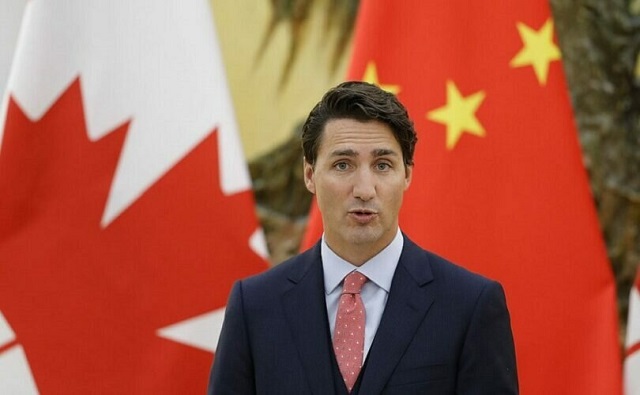
 espionage2 days ago
espionage2 days agoTrudeau’s office was warned that Chinese agents posed ‘existential threat’ to Canada: secret memo
-
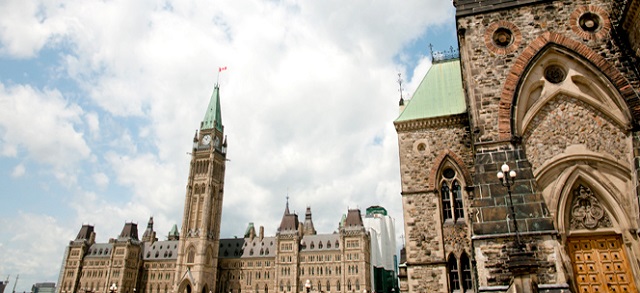
 Economy2 days ago
Economy2 days agoMassive deficits send debt interest charges soaring
-

 Business1 day ago
Business1 day agoBusiness investment key to addressing Canada’s productivity crisis
-

 Jordan Peterson1 day ago
Jordan Peterson1 day agoJordan Peterson slams CBC for only interviewing pro-LGBT doctors about UK report on child ‘sex changes’
-

 International1 day ago
International1 day agoBrussels NatCon conference will continue freely after court overturns police barricade
-
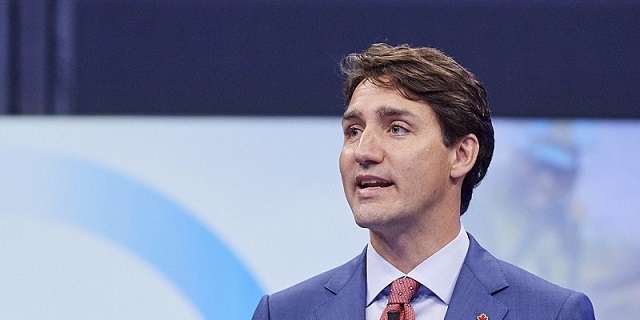
 Business1 day ago
Business1 day agoFederal budget fails to ‘break the glass’ on Canada’s economic growth crisis
-

 Frontier Centre for Public Policy1 day ago
Frontier Centre for Public Policy1 day agoThe Smallwood solution








